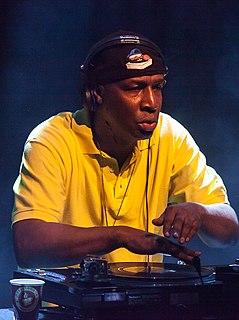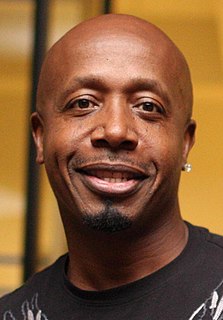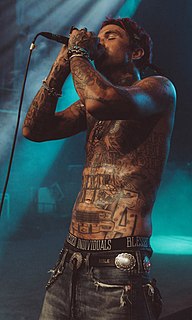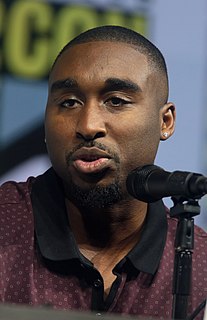A Quote by Jess Row
As a white teen, I was very drawn to hip-hop culture, almost to the point of disappearing in it - there was a sense of having no sense of authenticity except this one that wasn't mine.
Related Quotes
Socially, hip-hop has done more for racial camaraderie in this country than any one thing. 'Cause guys like me, my kids - everyone under 45 either grew up loving hip-hop or hating hip-hop, but everyone under 45 grew up very aware of hip-hop. So when you're a white kid and you're listening to this music and you're being exposed to it every day on MTV, black people become less frightening. This is just a reality. What hip-hop has done bringing people together is enormous.
To me, that's the biggest problem with hip-hop today is the fact that everyone believes that all of hip-hop is rap music, and that, when you say "hip-hop," it's synonymous with rap. That when you say "hip-hop," you should be thinking about breakdancing, graffiti art, or MCing - which is the proper name for rap - DJing, beat-boxing, language, fashion, knowledge, trade. You should be thinking about a culture when you say, "hip-hop.".
Well, we have to realize the truth about the person who is a hip-hop insider. Most of these people are not really insiders. They are people who are chosen to do an interview and they will make a statement and say that they are a part of the hip-hop culture, but from an intellectual standpoint, they are not very sharp, because back in '1990..'91 one would criticize somebody for doing one type of commercial and say that's not real hip-hop and then another rapper turns around and sell them malt liquor and say that's real hip hop.
I am trying to get folks outside the hip-hop culture to understand why, despite the negatives, young people find hope and refuge in hip-hop. I'm hoping that young people immersed in the culture will work harder to capitalize on the possibilities for great social change that hip-hop represents as a national unified cultural youth movement.
This is more in regards to celebrities. What we've got to understand is that we are the influencers of the hip-hop culture, the black culture. We are the way out, you feel what I'm sayin'? As far as who we look to and where we get stuff from - hip-hop culture is influencing the world, really, but especially the black communities.
I think that hip-hop should be spelled with a capital "H," and as one word. It's the name of the culture, and it's the name of the identity and consciousness. I think hip-hop is not a product, but a culture. I think rap is a product, but when hip-hop becomes a product, that's slavery, because you're talking about people's souls.



































